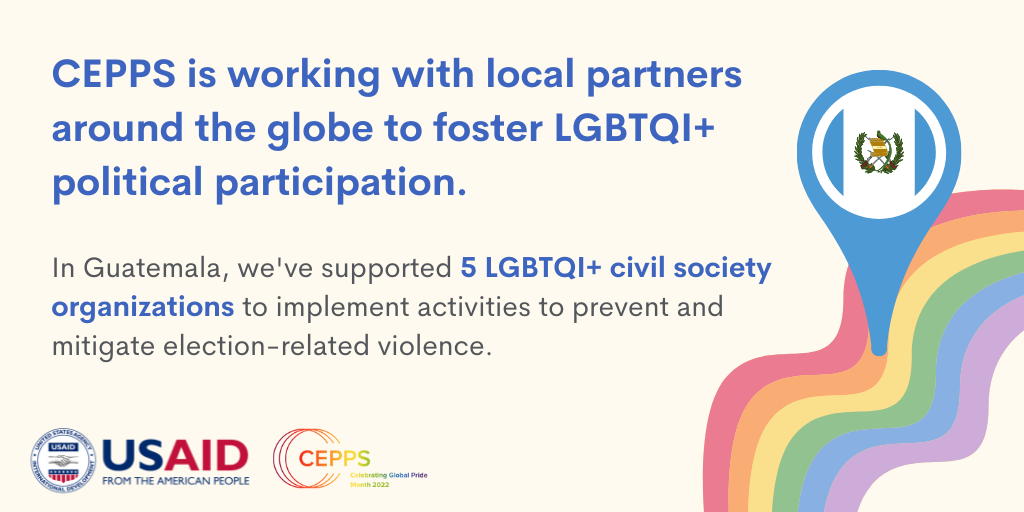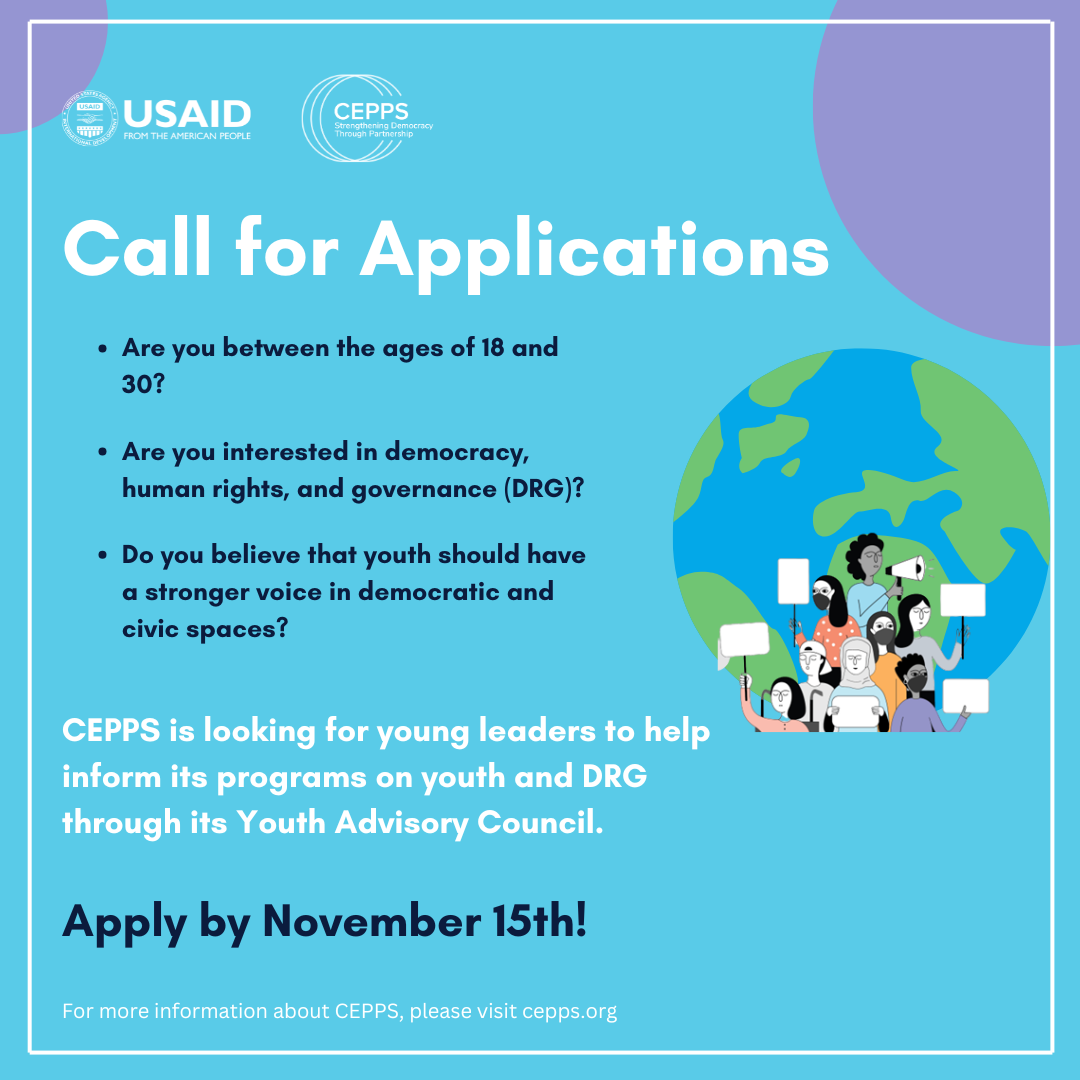To read this issue in its original format, click here.
Dear Colleagues,
As we celebrate Global Pride Month, we are reminded that democracy only flourishes when all members of a population are able to freely and equitably exercise their full range of human rights. All too often, however, large portions of the population are excluded from public life because of sexual orientation or gender identity. This discrimination-fueled marginalization often prevents members of lesbian, gay, bisexual, transgender, queer, and intersex (LGBGTQI+) communities from exercising their basic human rights, such as freedom of speech and association, and excludes them from participating in general political processes. CEPPS proudly works alongside LGBTQI+ communities and organizations globally to increase their political inclusion, advance equality, and create more inclusive processes in which all members of society are able to better engage in political proceedings and influence decisions that may affect their lives.
CEPPS stands in resolute solidarity with the courageous LGBTQI+ leaders around the world in our commitment to support democracies that are inclusive of all people. Follow us on Twitter @CEPPS throughout June to see how our staff is standing up for equality alongside our LGBTQI+ partners all over the world.
Yours in democracy,
Jerry Lavery
Managing Director, The Consortium for Elections and Political Process Strengthening

The CEPPS HQ team celebrating Pride!
In February 2021, President Biden issued the Presidential Memorandum on Advancing the Human Rights of Lesbian, Gay, Bisexual, Transgender, Queer, and Intersex (LGBTQI+) Persons Around the World. Building on the memorandum issued by President Obama in 2011, this directive instructs executive departments and agencies working abroad, including USAID, to ensure that U.S. diplomacy and foreign assistance promotes and protects the human rights of LGBTQI+ persons around the world, and outlines key policy goals aimed at doing so.
In May, the United States Government released its first-ever public report on the implementation of the Presidential Memorandum which provides detailed reporting from agencies abroad on how they have made progress towards achieving the goals laid out within the presidential memorandum. These efforts, which take place in partnership with global civil society and are guided by “do no harm” and “nothing about us, without us” principles help to ensure that efforts do not contribute to backlash or negative repercussions for members of LGBTQI+ communities. All of these efforts align closely with the work currently being done by CEPPS through the DEPP mechanism. With the inclusion of historically marginalized groups, notably LGBTQI+ individuals, as a cross-cutting priority across regional and technical areas within DEPP, CEPPS is committed to supporting local partners in expanding the rights, dignity, and participation of LGBTQI+ individuals in all civic, political, and electoral processes.
CEPPS is thrilled to announce the addition of Terry Hoverter to the roster as the new DEPP Technical Director. Terry brings more than 20 years of Democracy, Human Rights and Governance experience leading short- and long-term development programs focused on critical democracy and governance issues. As the technical director, Terry will provide regular insights and information on advancements made by the technical arm of the consortium. Keep your eyes peeled on this space for the latest information from the field in future “Beyond the Ballot” editions.
Regardless of where disinformation happens, one constant is the regular exploitation of social fractures by leveraging hate speech and xenophobic, racist, sexist, and homo, or transphobic ideas, manipulating stereotypes about individuals or groups to play into people’s biases, or by targeting marginalized groups in identified-specific ways. These attacks not only have a direct impact on individuals, but often discourage broader political participation. Gendered disinformation campaigns frequently employ regressive notions of gender and gender norms regarding “proper” feminine or masculine identity, behavior, or characteristics. The aim is to manipulate political outcomes or notions of gender in homophobic or transphobic ways to either directly attack the sexual or gender identity of a political leader and/or to negatively call into question a leader’s sexual or gender identity. While this discredits individual leaders from these communities, it also causes people to withdraw from political life for many members of already marginalized groups.
For more information, check out CEPPS’s Countering Disinformation Guide which explores these types of attacks, among others, and contains a global database of effective interventions to respond to disinformation.
The Tegucigalpa-based CEPPS partner, the Center for Development and Cooperation (Centro para el Desarrollo y la Cooperación) LGBTI-SOMOS CDC, supports political advocacy, economic empowerment, knowledge management, strategic litigation, and access to justice for LGBTQI+ individuals in Honduras. For more information, follow the link to our recent spotlight, featuring Grecia O’Hara, SOMOS-CDC’s communications consultant, sharing her thoughts on challenges to political participation for LGBTQI+ Hondurans and what Pride means to her.
CEPPS recognizes that democracy and inclusion are indivisible. It is only when all people have equitable opportunities to meaningfully participate in the political life of their societies, that democracy can flourish. Our work in Guatemala, for example, helps foster LGBTQI+ inclusion and prevent election-related violence.



